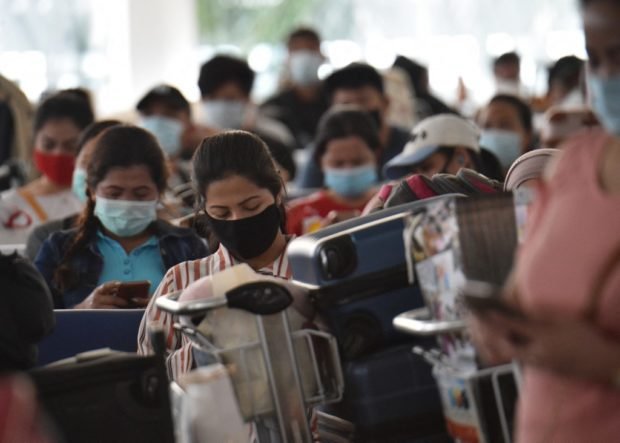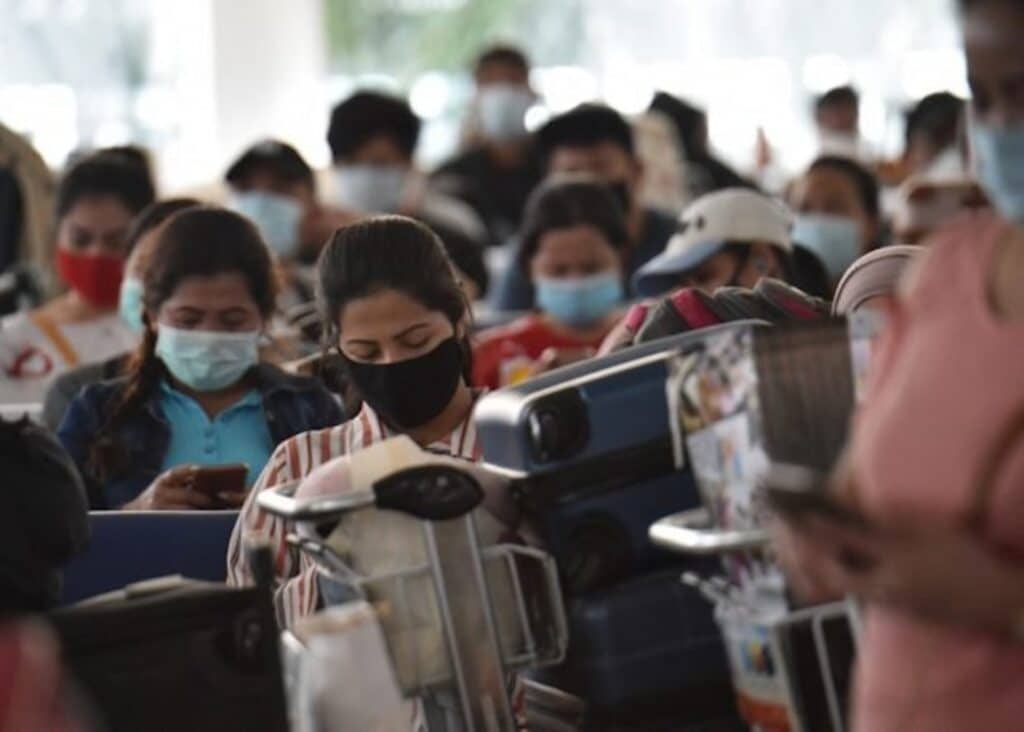
Overseas Filipino workers are among the groups vulnerable to online lending scams in the country. | FILE PHOTO INQUIRER
CEBU CITY, Philippines – Overseas Filipino Workers (OFWs) and teachers are increasingly becoming prime targets of sophisticated loan scams, the Securities and Exchange Commission (SEC) warned.
With the holiday season approaching, the release of year-end bonuses and the return of many OFWs to spend time with their families make these groups even more vulnerable to fraudulent schemes.
Lawyer Sheara Lupango-Tamayo, SEC Cebu director, discussed the alarming strategies employed by scammers to exploit these vulnerable sectors, leveraging their financial capacity and trust in online platforms.
READ MORE:
Online love scams: Filipinos are top targets
NBI warns public vs. online lending scams
OFWs warned vs criminal online lending group thriving on social media platforms
According to Tamayo, the loan scam typically begins when victims are initially contacted through Facebook. The communication then shifts to Telegram, where the scammer continues to process the loan.
Victims are asked to pay various fees, such as for processing, delivery, and transfer. They are also required to make a deposit, falsely presented as proof of their ability to repay, which is assured to be added to the loan amount.
However, after the payment is made, the promised loan is never disbursed, and the victims are met with more excuses, with further funds being requested but never resulting in the release of the loan.
READ MORE: Tips from DICT-7: How to protect yourself from online scams
In a press conference on Wednesday, November 20, Tamayo revealed that scammers often lure victims through websites and mobile apps advertising easy loans.
“An OFW, for instance, might stumble upon an online platform offering loans. Communication then shifts to Telegram, where a loan agent convinces the borrower to pay fees, such as a documentary stamp tax, promising it will be deducted from the loan proceeds,” she explained.
However, after the victims remit substantial amounts, often reaching hundreds of thousands of pesos, the promised loan never materializes, and all communication with the scammers abruptly ceases.
Teachers are similarly susceptible due to their consistent income and close-knit communities, Tamayo said.
“Teachers share these opportunities by word of mouth, making it easier for scams to proliferate among their peers,” she added.
OFWS at tisk
OFWs are particularly at risk due to their significant earnings and frequent use of the Internet to find financial opportunities. Tamayo said that OFWs, with their substantial salaries and ample time to browse online, often become prime targets for scammers.
Teachers, on the other hand, fall prey due to their stable monthly income.
“Once one teacher is scammed, they often inadvertently lead their colleagues into the same trap,” she noted.
Farmers are not exempt, as scammers exploit their assets, such as farm lots and livestock, which can be used as collateral.
The SEC’s warnings come amid ongoing efforts by law enforcement agencies to crack down on loan scams and related fraudulent activities. Earlier this year, the National Bureau of Investigation (NBI) arrested a Chinese national in Pasay City for running a similar scam through the 24HPeso app.
Victims of 24HPeso reported that after borrowing amounts as small as P3,500, they were harassed and threatened despite fully repaying their loans. The app was also found to contain malware that accessed victims’ phonebooks, which scammers used to intimidate borrowers further.
The case highlights the risks posed by unregulated lending platforms. NBI Director Jaime Santiago assured the public that thorough investigations were conducted and that every step was documented in compliance with legal protocols to ensure the perpetrators are held accountable.
Scamming networks
Meanwhile, scamming networks often extend beyond Philippine borders. Foreign Affairs Undersecretary Eduardo Jose de Vega recently warned against the regional trafficking of workers, including OFWs and foreign laborers, for fraudulent purposes.
These operations exploit vulnerable individuals, leading them into illegal work or scam activities across Southeast Asia.
De Vega recounted instances where the Philippines repatriated women trafficked to Myanmar for scamming operations and to Cambodia for surrogacy work.
He noted that these schemes are part of regional networks luring individuals into illegal activities and highlighted the involvement of Chinese employers in some of these cases.
With this, the SEC Cebu director encouraged the public to report suspicious activities to the SEC, even anonymously and emphasized that providing evidence is crucial for pursuing cases against scammers. She urged anyone who suspects fraud, even if unsure, to come forward for the safety of the public.
She noted that many victims hesitate to report scams out of shame or hope of recovering their losses, but stressed that public safety should come first.
The SEC’s “Fraud Prevention Advisory” advised the public to carefully check the authenticity of documents like registration certificates. It recommended confirming with the appropriate agencies to ensure these documents are valid and not forged, as scammers often use fake or expired certificates.
